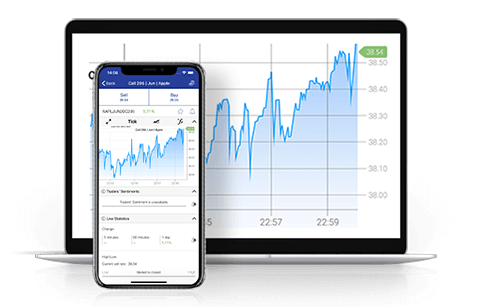What is the Difference Between Options CFDs and Traditional Options?
What are Traditional Options?
A traditional Option is a contract where the seller gives the right, but not the obligation, to the buyer to buy or sell an underlying instrument such as a commodity, stock, forex pair, index or another asset at a predetermined price within a set time period. If the underlying instrument rate doesn’t meet the Strike Price by the expiration date, the position will expire with no value. Holders have the option to buy or to sell the underlying instrument. Traditional Options give the holder the ‘option’ to decide whether or not to go through with the trade. If the trader makes the correct decision, there are more ‘options’ to buy assets at below the traditional market value.
How are Options CFDs Different?
Options CFDs are quite similar to traditional Options, however, there are a few key differences. When you trade options CFDs you are speculating on the future price (strike price) of an underlying Reference Instrument such as a stock, index or commodity.
All options CFDs offered by Plus500 are cash settled (i.e. actual physical delivery of the Reference Instrument never occurs). At the expiry of an Option CFD, cash is credited or debited to your balance based on the difference in the opening and closing price, whereas with traditional options, holders have the right to exercise the trade. This is the most significant difference between Options CFDs and traditional Options.

Illustrative prices.
Options CFDs Vs Traditional Options
Here are some key elements to consider:
Traditional Options- Exposure to significant loss potential as a traditional Call or Put Option Seller.
- Must have a minimum trading fund (which is usually large).
- Traditional Options provide opportunities for future ownership.
- The trader can pay a commission depending on the position’s size.
- Plus500 provides client risk management tools such as Stop Loss, Limit Stop, Guaranteed Stop etc.
- Trading on a CFD account has a defined “Unit Amount” per instrument, which is the minimum size of trade or number of contracts/shares etc. to open a position.
- When trading CFDs on the Plus500 platform you can only lose as much as your account balance.
- The Plus500 platform does not charge commissions on Options CFDs.
- CFD Options are leveraged, therefore you can open a larger position with the same capital (note: leverage amplifies investor gains and losses).
Final Thoughts
Options CFDs and traditional Options are quite similar. Both are derivatives, which means the value is derived from the value of an underlying asset. The most notable difference is that Options CFDs are cash settled, where traditional options can be exercised by the holder. In addition, Options CFDs are traded with leverage. Overall, you should conduct your own thorough research into both traditional Options and Options CFDs as they are complex to trade.
